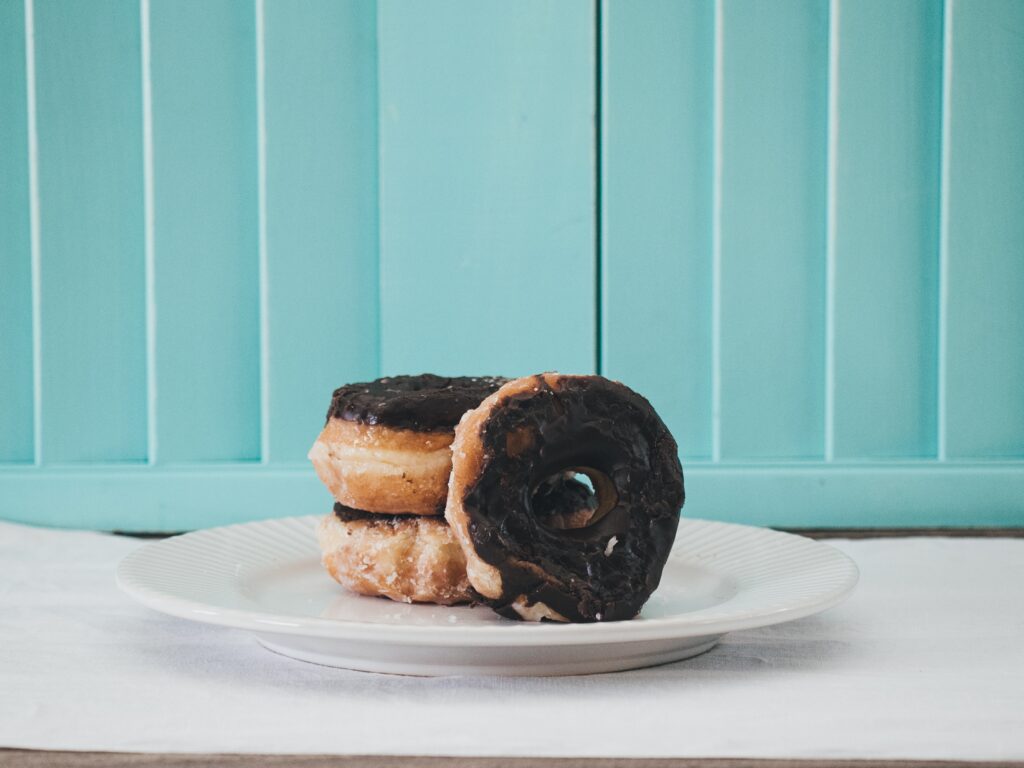Food is a solid part of every event in the culture of Pakistan. Whether it may be a joyous occasion like a wedding ceremony or a mourning one like a funeral, food is the main focus of the event for most of the guests present. Like every society, we have our set of food habits and norms which are difficult for us to change despite the fact that they may be deteriorating for our health in the long run.
Despite regular awareness on social media and by peers and experts, diet and food habits have always remained ambiguous topics. That’s because everyone has different food tastes and preferences, and everyone tends to experiment with different diet fads and trends in society. We should remember that we are what we eat and providing a balanced diet and lifestyle to our body ensures that it works well.
Social media is the strongest influencer for everyone nowadays. I, for example, mostly get to know about the latest diets and food trends through Instagram because I follow a lot of celebrities, nutritionists, and lifestyle bloggers there. Every one of them has their own ideas and tips to offer, but I’ll tell you one thing that there is a common line they all agree on: food can be used to influence your lifestyle and health, it can be your medicine or it can be your poison. That means everything you put in your mouth affects you in one way or the other, so you have to be careful about the constituents, quantity, and timing of the food that you consume.
I’ll discuss some of the bad trends that tend to increase day by day in our society:
1. Late breakfast
The ideal time for breakfast is from 8 to 9 am. Most people don’t realize that this is the most important meal of the day and our energy level for the day depends on how good a breakfast we’ve had. Just drinking tea or processed white bread or a glass of milk or juice is not at all the right way to start your day. A typical Pakistani breakfast consists of a Paratha along with an egg or any curry or yogurt followed by tea. This is a perfectly healthy breakfast provided it is done at the ideal hour and the rest of the day is spent actively. Eating most of your calories for the day in the first meal of the day assures that you burn them throughout your routine and the body doesn’t store them as fat. Eating your breakfast late or skipping it altogether is harmful to the brain, which constantly requires a source of glucose to function properly.
2. Excessive use of caffeine
I think we got this trend from our drama industry. People portray tea as some kind of magic potion for headaches, stomach aches, bad moods, tiredness, etc. I know people will hate me for writing this down, but it is not okay to consume more than three cups of tea a day. You do not need to turn to tea as your rock in hard times, it’s just a drink that needs to be taken moderately.
I know people who drink six to seven cups a day because they feel like they need it. Well, hear clearly people; tea is not a medicine for your problems. Also, the typical tea involves using powdered whitener to your teabag. While these may take lesser time, they are not healthy. Try using fresh milk so that you get the benefits and nutrients of milk as well.
3. Not drinking enough water
Water is taken very lightly by people. Do you know that 90 percent of the cells in your body consist of water? Ideally, you should consume at least 8 glasses of water a day. As soon as you wake up, you should consume 2 glasses, then one an hour before every meal, one before bedtime, and squeeze in a few between the day.

You can consume up to 16 glasses a day. it will help your body to flush out toxins via urine and sweat, your skin will glow and you’ll feel active and healthier as well.
4. Not eating enough raw vegetables
When it comes to eating salad, many people don’t understand the concept. Just slicing a few cucumbers on a small plate along with a meal for the whole family is not what a salad is. It should comprise of fresh vegetables, at least three to four, tossed in olive oil, and a whole serving should be eaten in the afternoon. Salads should comprise of whatever’s in season like cucumbers, tomatoes, apples, carrots, radishes, sweet corn, onions, beetroot, cabbage, iceberg, etc. If you want to add a staple like pasta or chickpeas to your salad make sure they don’t outnumber raw things. Drizzle with some olive oil and you’ve made yourself the ideal concoction of vitamins, minerals, and antioxidants!
Vegetables which are steamed or simply grilled are also an excellent source of nutrients. Make sure that you eat vegetables in at least one of your meals. They are a good source of carbs as well as fibre and a cure for chronic health conditions like diabetes and blood pressure. The thing to remember is that fruits and vegetables make your plate colourful and diverse. The more colours your plate has to offer, the more healthy it is for you!
5. Snacking on the wrong items
Snacking means eating small amounts of certain foods between the main meals of your day, usually to satisfy cravings or for immediate boosts of energy. Ideally, this is not a bad idea, but people usually prefer to snack on biscuits, cookies, packet potato crisps, boxed juices, and fizzy drinks, fried, baked, and refined items, etc. All of these foods are made of nothing but crap and calories.
If you feel like munching on something, try nuts, seeds, whole wheat biscuits, carrot sticks, fruit, dark chocolate, etc. You might not get satisfied at first but believe me, you’ll get the knack of it and enjoy these healthy snacks more!
6. Overdoing it at tea-time
Most people tend to load themselves with all sorts of delicacies like butter cookies, sugary baked items, fried samosas, rolls, etc. with their evening tea. If you crave something sweet or crunchy along with your cup of tea, one item or one serving is more than enough. Having one cookie or so is all want is needed to satisfy you. Bake some healthy oatmeal and raisin cookies at home or opt for a few pieces of dry fruit with your tea. This is a very important factor in keeping that waistline of yours in check!
7. Drinking fizzy drinks with meals
The perception that drinking cold drinks with or after meals helps in digestion and releases gas is completely wrong. Drinking fizzy carbonated drinks along with a meal wreaks havoc all along your alimentary canal. Instead of curing gas, it creates more of it and messes with your digestive juices. This could lead to bloating, acidity, and stomach aches.
If you want to aid digestion, try drinking water thirty minutes before a meal, do some light strolling after the meal or drink green tea.
8. Oily, salty, sugary foods
Almost all of our traditional cuisines involve a combination of spices and heavy ingredients like cream, ghee, etc. Whether it be biryani, or nihari, or halwa poori, Pakistanis tend to add extra oil, spices, and sugar in their food, believing that is what brings the exceptional flavor. Flavour actually lies in the freshness of ingredients, the procedure of cooking and handling, and the moderate combination of all the ingredients. An indication of a healthy dish is that you don’t feel too full or bloated or thirsty after eating it.

9. Not sticking to a routine
The most important factor in maintaining a healthy lifestyle is to strictly cohere to a routine. The routine should involve proper timings for meals, sleep, and all other tasks of the day including walk, exercise, household chores, refreshment, and relaxation. Once you let life swing into a proper schedule, it becomes smooth and easier as well as healthier. Your body adapts to it and knows what and when to expect. Avoid skipping meals, or doing sudden strenuous exercise, or taking stress all the time. These terrible habits can seriously affect your immunity and lifestyle.
10. Not planning and reflecting
Life gets a load easier if you plan your meals beforehand. This way you can make sure to include all the food groups and buy your groceries accordingly. Deciding what to eat when you’re on the verge of hunger makes you choose calorie-dense foods that you regret later and then feel stressed about.
Take out a few minutes at the end of your day to reflect upon your other habits as well as eating ones. Do you tend to eat a lot when under stress? Do you drink enough water? Did you have three fruits today? Did you eat more than one sugary item? If you can, try keeping a food diary to keep track of what you consume. This way you can make sure to limit your calories and include all the important foods in your diet as well.
11. Not observing common table manners
Chewing too fast, swallowing big bites, chugging down water between meals, not sitting up straight while eating are all little things that make a huge difference. We usually tend to neglect these essential minute intricacies of fine dining and believe they don’t matter. Well, they do. For example, drinking water between meals causes disturbance in digestion and causes bloating or, in some cases, hiccups which are not good for the heart. And regarding chewing, it is the first essential step of digestion which ensures that food has been broken down enough to be easily further digested by the stomach.
12. Drooling and dying over dessert
Dessert is personally one of my greatest weaknesses and I simply can’t imagine life without sugar. When I first read about how you shouldn’t eat dessert, I felt like shutting and kicking away the laptop and indulging in the bucket of ice cream in my freezer anyway. Then many seconds of self-control and calm provoked me to read further, and I was happy that I did. There is no rule which says you shouldn’t eat dessert (Thank God!). All you have to do is keep two things in mind: timing and portion. It is better to have dessert only after one of your meals and that too after lunch since you’ll have the rest of the day to burn it off. Make sure to have just a few bites or a small serving, one that keeps you satisfied.
How many of these food habits do you have?
Also Read: MIND OVER FOOD; THE PSYCHOLOGY OF EATING

Aniqa Mazhar is a graduate of QAU in Biochemistry. She has taught sciences to O levels and is currently planning for her MS in Food Technology. Aniqa’s hobbies are reading, watching movies, writing, calligraphy, long walks, and nature photography.

